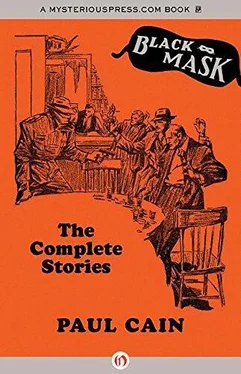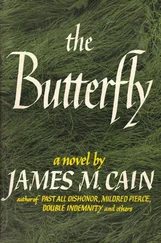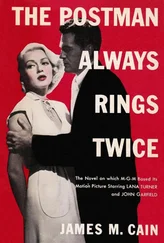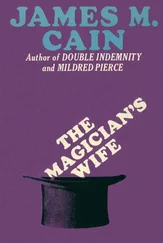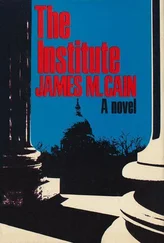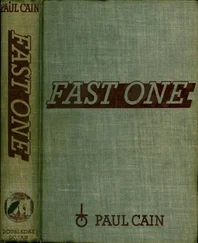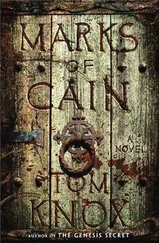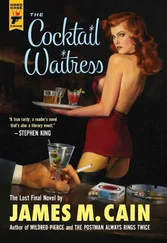Bubu stood, his arms full of dusty bottles, staring down at his master in ajar-jawed astonishment. The rain had slacked, and in the garden Gertrude aped a nightingale, split the satin of her throat with melancholy song. And now the sounds beyond the door subsided slowly to a kind of satiated coda, a roundelay of little grunts and chucklings.
Etienne stumbled to his feet and stared unseeingly at Bubu. Then a little, very little life illumed his eyes.
“Fetch me the ax,” he said.
Mercedes’ robe was neatly folded on a chair, her spun-glass slippers glittered together on the floor. The Tasting Machine was silent, somnolent, its filament glowing with a blinding white-hot fever. Etienne took it gently into his arms and carried it to the cellar, held it poised for a moment above an open hundred-gallon cask of Thracian wine, then let it go. It came up thrice, and at the last time Etienne fancied — was it his overwrought imagination? — that it called out wispily for help, then choked and strangled, sank, and was entirely gone.
Back in the kitchen he opened an ironwood cabinet and removed a case of thin, brilliantly glistening knives, fell to sharpening them. Bubu was polishing glasses; Gertrude flew in through the open window, perched above the range, and preened her wet, bedraggled feathers.
“Pieces of eight,” she squawked. “Pieces of eight!”
The cuckoo clock on the floor above distantly caroled.
Etienne wondered, was it eight or nine? Or did it matter? He went to the slate, gazed at it reflectively for a little time, then slowly erased Hamburger 61st Street and scrawled in its place: Brochettes de Foie Vincent .
The front doorbell chimed.
“Please answer it,” he said to Bubu. “Sir Osbert Fawning and the Dowager Lady Swathe are often early.”
A swift story of gambling, big-time politics and sudden death in Los Angeles and Hollywood, the new WILD WEST!
Kells walked north on Spring. At Fifth he turned west, walked two blocks, turned into a small cigar store. He nodded to the squat bald man behind the counter and went through the ground-glass paneled door into a large and bare back room.
The man sitting at a wide desk stood up, said: “Hello” heartily, went to another door and opened it. He said: “Walk right in.”
Kells went into a small room, partitioned off from the other by ground-glass paneled walls. He sat down on a worn davenport against one wall, leaned back, folded his hands over his stomach, and looked at Jack Rose.
Rose sat behind a small round green-covered table, his elbows on the table, his long chin propped upon one hand. He was a dark, almost too handsome young man who had started life as Jakie Rosencrancz, of Brooklyn and Queens. He said: “Did you ever hear the story about the three bears?”
Kells nodded. He sat regarding Rose gravely, and nodded his head slowly up and down.
Rose was smiling. “I thought you’d have heard that one.” He moved the fingers of one hand down to his ear and pulled violently at the lobe. “Now you tell one. Tell me the one about why you’ve got such a load on Kiosque in the fourth race.”
Kells smiled faintly, dreamily. He said: “You don’t think I’d have an inside that you’d overlooked, do you, Jakie?” He got up, stretched extravagantly and walked across the room to inspect a large map of Los Angeles County on the far wall.
Rose didn’t change his position. He sat staring vacantly at the davenport. “I can throw it to Bolero.”
Kells strolled back, stood beside the table. He looked at a small watch on the inside of his left wrist. He said: “You might get a wire to the track, Jakie, but you couldn’t reach your eastern connections in time.” He smiled with gentle irony. “Anyway, you’ve got the smartest book on the coast — the smartest book west of the Mississippi, by God! You wouldn’t want to take any chances with that big Beverly Hills clientele, would you?”
Kells turned and walked back to the davenport, sank wearily down, and again folded his hands over his stomach. “What’s it all about, Jakie? I pick two juicy winners in a row, and you squawk. What the hell do you care how many I pick? The Syndicate’s out, not you.”
He slid sideways on the davenport until his head reached the armrest. He pulled one long leg up to plant his foot on the seat, sprawled the other across the floor. He intently regarded a noisily spinning electric fan on a shelf in one corner. “You didn’t get me out in this heat to talk about horses.”
Rose wore a lightweight black felt hat. He pushed it back over his high bronzed forehead, took a cigarette out of a thin case on the table and lighted it. He said: “I’m going to reopen the Joanna D. Doc Haardt and I are going to run it together — his boat, my bankroll.”
Kells said: “Uh-huh.” He stared steadily at the electric fan, without movement, or change of expression.
Rose cleared his throat, went on: “The Joanna used to be the only gambling barge on the Coast, but Rainey moved in with the Eaglet, and then Max Hesse promoted a two-hundred-and-fifty-foot yacht and took the play away from both of them.” Rose paused to remove a fleck of cigarette paper from his lower lip. “About three months ago, Rainey and Doc got together and chased Hesse. According to the story, one of the players left a box of candy on the Monte Carlo — that’s Hesse’s boat — and along about two in the morning it exploded. No one was hurt much, but it threw an awful scare into the customers, and something was said about it being a bigger and better box next time, so Hesse took a powder up the coast. But maybe you’ve heard all this before...”
Kells looked at the fan, smiled slowly. He said: “Well, I heard it a little differently.”
“You would .” Rose mashed his cigarette out, went on: “Everything was okay for a couple weeks. The Joanna and Rainey’s boat were anchored about four miles apart and their launches were running to the same wharf, but they both had men at the gangways frisking everyone who went aboard, and that wasn’t so good for business. Then somebody got past the protection on the Joanna and left another ticker. It damn near blew her in two; they beached, finally got into dry-dock.”
Kells said: “Uh-huh.”
“Tonight she goes out.” Rose took another cigarette from the thin case and rolled it gently between his hand and the green baize of the table.
Kells said: “What am I supposed to do about it, Jakie?”
Rose pulled the loose tobacco out of one end of the cigarette, licked the paper. “Have you got a match?”
Kells shook his head slowly.
Rose said: “Tell Rainey to lay off.”
Kells laughed — a long, high-pitched, sarcastic laugh. “Ask him to lay off.”
“Run your own errands, Jakie.” Kells swung up to sit, facing Rose. “For a young fella that’s supposed to be bright,” he said, “you have some pretty dumb ideas.”
“You’re a friend of Rainey’s.”
“Sure.” Kells nodded elaborately. “Sure, I’m everybody’s friend. I’m the guy they write the pal songs about.” He stood up. “Is that all, Jakie?”
Rose said: “Come on out to the Joanna tonight.”
Kells grinned. “Cut it out. You know damn well I’d never buck a house. I’m not a gambler, anyway; I’m a playboy. Stop by the hotel sometime and look at the string.”
“I mean come out and look the layout over.” Rose stood up and smiled carefully. “I’ve put in five new wheels and—”
“I’ve seen a wheel,” Kells said. “Make mine strawberry.” He turned, started toward the door.
Rose said: “I’ll give you a five-percent cut.”
Kells stopped, turned slowly and came back to the table. “Cut on what?”
Читать дальше
